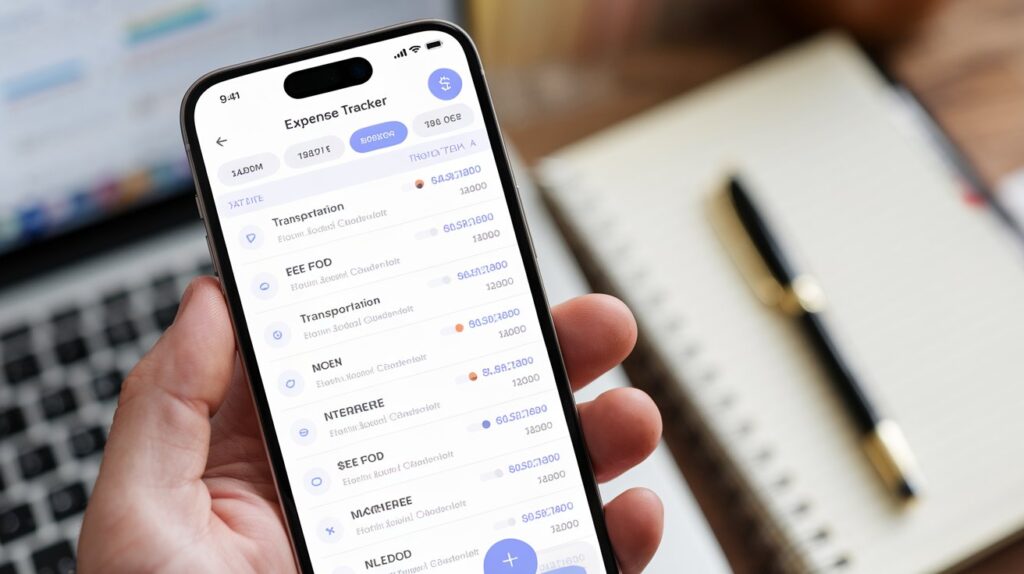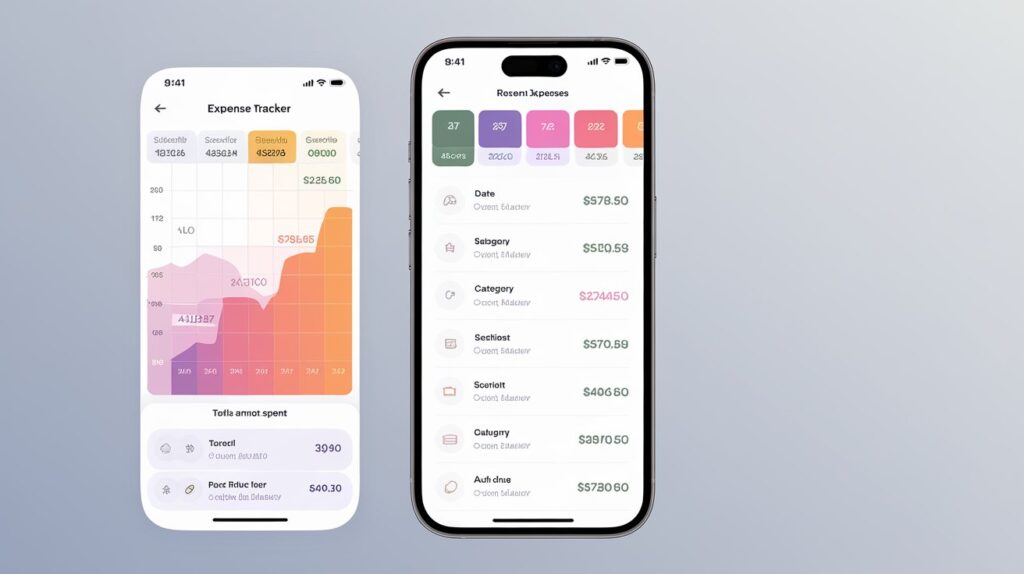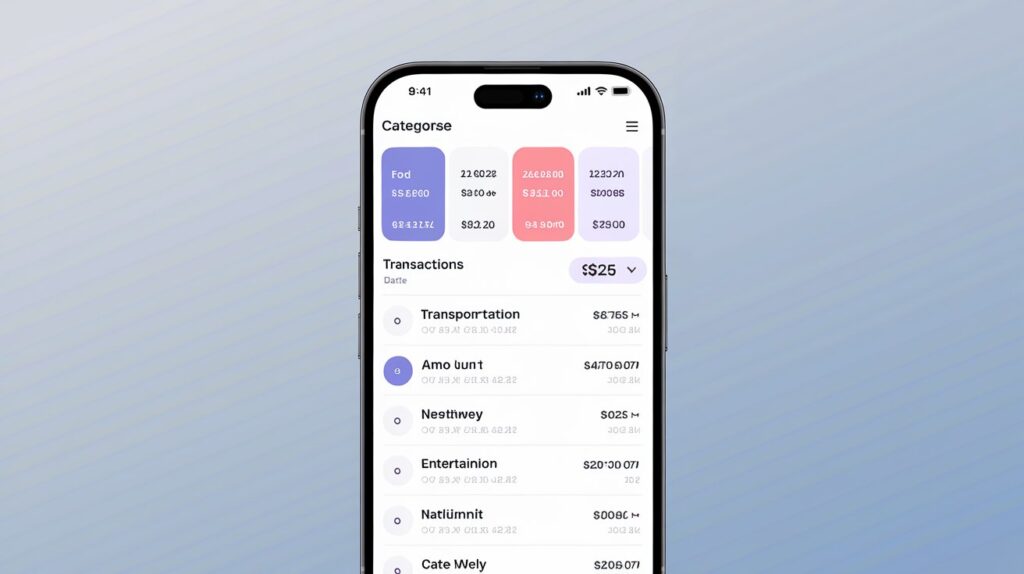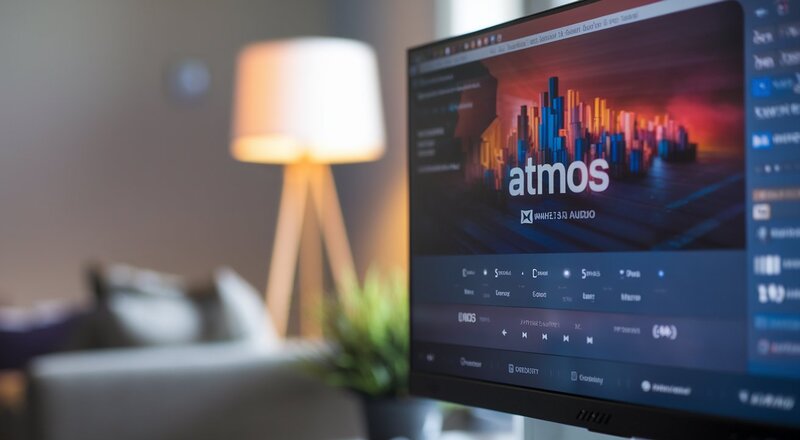Listen up, folks! If you’re straight up tired of wondering where your hard-earned cash disappears to every month, you ain’t alone. Expense tracker apps have become absolute game-changers for anyone trying to get their financial house in order. Whether you’re a Wall Street hotshot or just someone trying to save up for that dream vacation, these digital money managers are the real deal. Expense Tracker Apps Let’s break down everything you need to know about these financial lifesavers.
What Is The Best App for Keeping Track of Expenses?
Yo, so you wanna know which expense monitoring solution is the top dog? I gotchu.
YNAB (You Need A Budget) is crushing the competition right now. This bad boy doesn’t just track your spending—it completely changes how you think about your money. With its zero-based budgeting approach, you’re giving every dollar a job before you even spend it. Furthermore, YNAB users save an average of $600 in their first two months and $6,000 in their first year. That’s not small change! According to YNAB’s 2024 customer survey.
Mint used to be the big cheese, but since Intuit shut it down in early 2024, people have been flocking to alternatives. Additionally, Rocket Money (formerly Truebill) is another solid contender, especially if you’re looking to cancel those forgotten subscriptions draining your account.
Meanwhile, for the business crowd, Expensify remains the go-to choice with its receipt scanning and automatic categorization features. In fact, the app processed over $10 billion in expenses in 2024. Source: Expensify Annual Report 2024.
How Do I Track My Daily Expenses?
You wanna stay on top of your daily spend? Here’s the 411 on making that happen.

First things first, you gotta pick an expense logging method that works with your lifestyle. Most people these days are going with mobile apps because, let’s be real, your phone is already glued to your hand. Subsequently, apps like Wallet by BudgetBakers or Money Manager make it mad easy to log expenses on the go.
For the old-school crowd, nevertheless, carrying a small notebook works too. However, the key is consistency—tracking everything from your morning coffee to that late-night Uber ride.
Moreover, try these quick tips to make daily financial monitoring a habit:
- Set a reminder on your phone to log expenses at the same time each day
- Use apps with widget features for one-tap expense entry
- Connect your bank accounts for automatic tracking when possible
- Take photos of receipts immediately after purchases
“Consistency is more important than complexity when tracking expenses,” notes financial advisor Maria Rodriguez. “A simple system you actually use beats a sophisticated one you abandon after a week.” Financial Wellness Today, March 2025.

What Budget App Is Better Than Mint?
Since Mint closed shop, everyone’s been scrambling to find the next best thing. I’m here to spill the tea on the dopest financial management alternatives.
Personal Capital is straight fire for those who want both expense tracking AND investment monitoring. Meanwhile, with over $50 billion in assets under management, they’ve clearly got their act together. Additionally, their free tools give you a complete picture of your financial health. Personal Capital User Statistics 2025.
Monarch Money has been blowing up lately too. This slick budget monitoring platform combines the best features of Mint with a more intuitive interface and better customer support. In addition, their custom categories and financial goal setting features are on point.
Then there’s Copilot, which uses AI to predict your spending patterns and offer suggestions that actually make sense. Moreover, their automated expense categorization is scary accurate at 95%, saving you hours of manual work. Copilot App Blog, January 2025.
“The best Mint replacement depends on what you valued most about Mint,” explains tech reviewer Jason Chen. “If it was simplicity, try Simplifi. If it was investment tracking, go with Personal Capital.” Tech Review Monthly, February 2025.
What Is The Best Free AI Expense Tracker?
AI is changing the game in financial monitoring technology, and some of these smart trackers won’t cost you a dime.
Cleo is deadass the sassiest AI financial assistant out there. This free app connects to your accounts, analyzes your spending, and talks to you like your brutally honest bestie from Brooklyn. Furthermore, their AI can identify saving opportunities you might miss. Cleo User Reviews 2025.
Nav.it is another solid AI-powered expense solution that’s free to use with premium upgrades available. Their AI focuses on your financial wellness, not just the numbers. Subsequently, they’ve helped over 500,000 users improve their financial health scores in 2024 alone.
PocketGuard’s free version uses AI to find bills you’re overpaying and subscription services you’ve forgotten about. Moreover, their “In My Pocket” feature tells you exactly how much you can spend without messing up your budget.
“Free AI expense trackers are revolutionizing personal finance by making money management accessible to everyone, regardless of financial literacy level,” notes financial inclusion advocate Tanya Williams. Financial Inclusion Report 2025.

What Is The #1 Budgeting App?
If we’re talking the absolute GOAT of budget management applications, I gotta give it to YNAB (You Need A Budget).
YNAB isn’t just an expense tracker; it’s a whole financial philosophy. Their four rules approach has helped millions of users get out of debt and build serious savings. Additionally, their 34-day free trial gives you plenty of time to see if it’s worth the subscription fee.
The numbers don’t lie—YNAB users save an average of $6,000 in their first year. Meanwhile, that’s a 500% return on the subscription cost! YNAB Impact Report 2024.
Goodbudget is another top contender, especially for couples managing money together. Their envelope budgeting system is mad intuitive. Moreover, 78% of their users report reduced financial arguments in relationships after six months of use.
“The best budgeting app is the one that changes your behavior, not just tracks your spending,” says financial behavior specialist Dr. Rachel Cohen. “Look for apps that make you pause before purchases, not just record them after the fact.” Journal of Financial Psychology, December 2024.
Finding Your Perfect Expense Tracker Apps
Listen, at the end of the day, the best financial monitoring tool is the one you’ll actually use consistently. Some people need all the bells and whistles, while others just want something simple that gets the job done.
Before you commit, consider these factors:
- Your financial goals (debt payoff, saving, investment tracking)
- Your tech comfort level
- Whether you need budget features or just expense tracking
- If you want AI assistance or prefer manual control
- Free vs. paid features that matter to your situation
Furthermore, don’t sleep on trying several apps before settling on your ride-or-die. Most offer free trials, so take advantage!
“The landscape of expense tracker apps is constantly evolving,” concludes fintech analyst Marcus Johnson. “The best advice is to reassess your financial tools annually to ensure they’re still meeting your needs as both technology and your financial situation change.” FinTech Forward 2025.
Now go get your money right!



